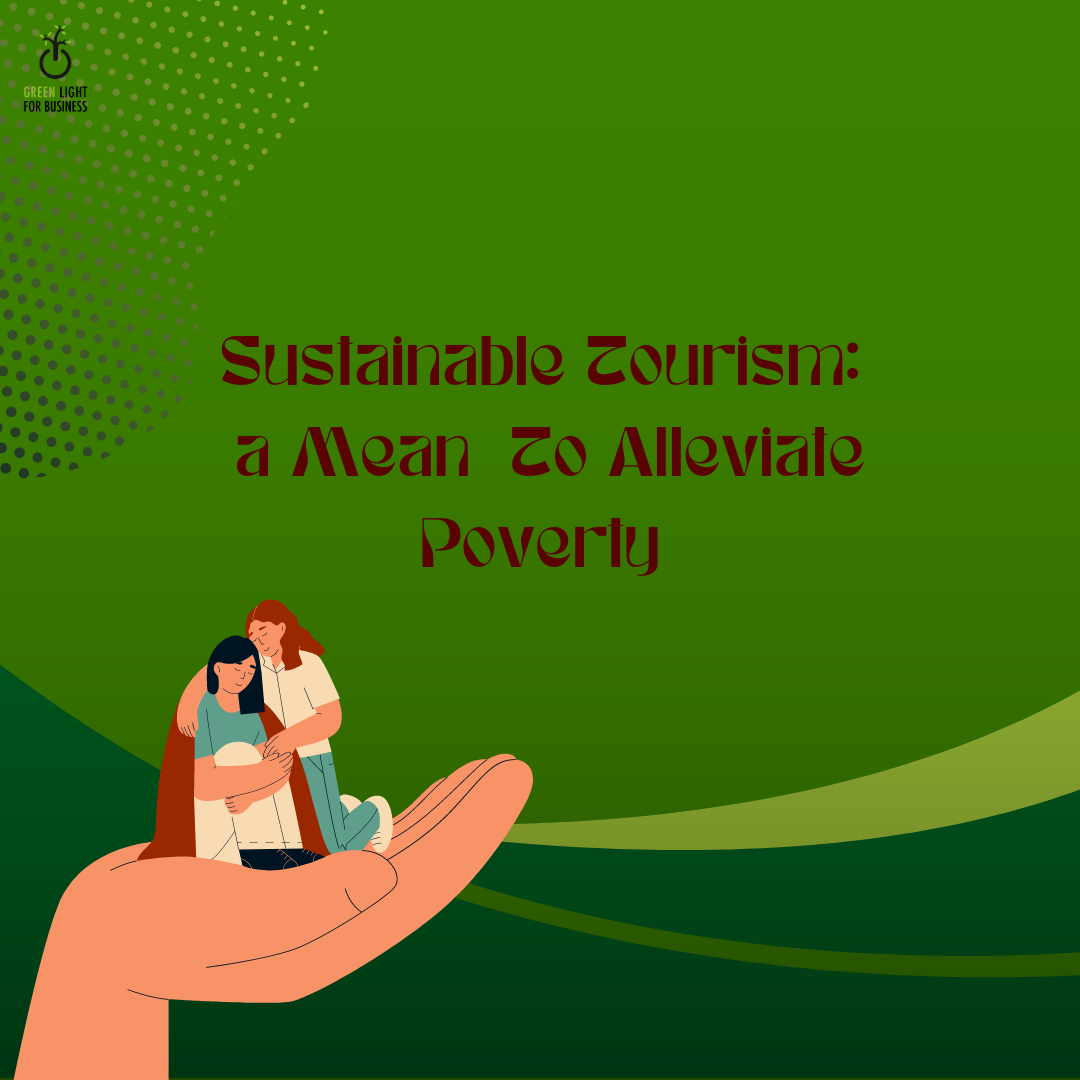Sustainable tourism is defined as a form of tourism that takes full account of its current and future economic, social and environmental impacts. Indeed, it aims to minimize the negative repercussions of tourism while maximizing its benefits for local communities, culture and the environment.
Sustainable tourism has a strong social focus. It can directly create jobs and income for local communities. Particularly in rural areas, it leads to employment diversification reducing the vulnerability of the poor. Tourism can be a significant source of foreign earnings exchange and create jobs in developing countries. This industry employs a high proportion of women contributing to gender equality and women’s empowerment. Tourism revenues can be used to improve infrastructures, education and health services in host communities. It also helps protecting our cultural heritage, preserving heritage sites for future generations.
Sustainable tourism encompasses ecotourism. A conservationist by the name of Hector Ceballos-Lascurain is often credited with its first definition in 1987, that is, “tourism that consists in travelling to relatively undisturbed or uncontaminated natural areas with the specific object of studying, admiring and enjoying the scenery and its wild plants and animals, as well as any existing cultural manifestations (both past and present) found in these areas”.
Ecotourism is centered around the idea of sustainable travel, where travelers engage in activities that do not harm the natural or cultural environment. It often involves local communities in the planning and management of tourism activities to empower them economically and socially. Sustainable tourism seeks to educate travelers about the natural and cultural significance of the areas they visit,fostering a greater understanding and appreciation for these environments. In Costa Rica, the country’s forest cover went from 26% in 1983 to over 52% in 2021 thanks to the government’s decision to promote ecotourism and create more protected areas.
That is not to say that it is without risks. These activities can potentially impact the ecological integrity of protected areas, especially if not managed properly. Due to tourism, local communities may face challenges such as increased living costs and potential marginalization. Another factor to consider is possible gentrification, which would consequently push out the local community in favor of wealthy tourists and expats.
Both tourists and local communities could be at risk of health issues and wildlife could be affected by the introduction of new pathogens. Primates are especially susceptible to the diseases transmitted by humans and the most likely ones to be spread between species are respiratory viruses. However, the overarching idea is that revenues from tourism are to be used to protect the environment while also alleviating the plight of the poor. Furthermore, if done correctly, sustainability practices will seep into other tourism activities, leading to more sustainable tourism across the world.
Some cities have already realized the importance of making sustainable development and tourism coexist. Cape Town, well known for its stunning natural beauty while being a rich cultural hotpot, is a perfect example. In 2002 the Cape Town Declaration and Responsible Tourism was agreed upon by stakeholders from 20 countries, emphasizing the importance of sustainable tourism. The city has furthermore identified eight priorities for responsible tourism, aiming for a truly sustainable destination.
The Declaration prioritizes the involvement of the local community, including them in cardinal decision-making processes and promoting vis-a-vis tourism. Moreover, it focuses on making positive contributions to the conservation of the cities and natural and cultural heritage. There’s also a focus on managing and minimizing the social impact of tourism on the local community. Notably there is an emphasis on marketing tourism in ways that reflect and enhance the destinations, supporting natural and cultural integrity.
By promoting sustainable tourism, the aim is to both minimize and reverse the negative effects of travel. These can include overcrowding, the destruction of heritage and environment, globalization and detrimental social change in vulnerable local communities.
It is not just the responsibility of tourist destinations to be responsible, however. The responsibility belongs to both visitors and hosts to ensure sustainability is addressed and maintained. A responsible tourist will make decisions based on what is best for the local communities in the long term, making sure that their actions will have a positive impact on those communities. This makes travelers an active part of that community albeit temporarily, as opposed to having them just be a spectator.
By Lucie Windels and Valerio Costa.
Sources:
borgenproject.org
capetown.gov.za
responsibletourismpartership.org ecotourism.org
sciencedirect.com




